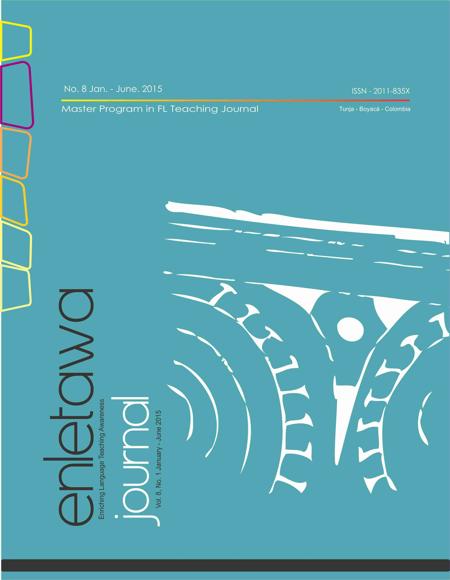Student-Teachers as Editors and Writers: a Pedagogical Design to Examine Peer Edition Through Formative Assessment

Abstract
The present pedagogical proposal describes an initial implementation of a peer-edition
process as a formative assessment strategy conducted with a group of nine firstsemester
Teacher Education Program students in a public school in Guadalupe Santander. On the whole, the study sought to identify and characterize how peer-editing could enhance students’ writing abilities. The
pedagogical design aimed at developing students’ awareness in relation to their role
as student editors and student writers and promoting autonomy in the process of learners’ composition exercise to encourage collaboration and cognitive development in the composition process evolution. The
piloting of a peer-editing cycle based on process writing and peer-editing principles was proposed, implemented and finally evaluated. Insights from the process were gathered and considered to refine and polish forthcoming cycles.
References
- Al-Jamal, D. (2009). The impact of peer response in enhancing ninth grader's writing skill. Umm Al-Qura University Journal of Educational & Psychologic Sciences, 1(1), 13-40.
- Azarnoosh, M. (2013). Peer assessment in an EFL context: attitudes and friendship bias. Language Testing in Asia, 3(1), 1-10.
- Bangert -Drowns, R. L., Kulik C. C., Kulik, J.A., & Morgan M.T. (1991). The instructional effect of feedback in testlike events. Review of educational research, 61(2), 213-238.
- Bijami, M. (2013). Peer feedback in learning English writing: Advantages and disadvantages. Journal of Studies in Education, 3(4), 91-97.
- Black, P. and William, D. (2009).Developing the theory of formative assessment. Educational Assessment, Evaluation and
- Accountability (formerly the Journal of Personnel Evaluation in Education), 1(1), 1-40.
- Brown, D. (1994). Teaching writing. In Teaching by principles.An interactive approach to Language Pedagogy. Second Edition. Pearson, ESL. 334-360.
- Brufee, K. (1999). Collaborative learning, 2nd edition. Baltimore: John Hopkins UP
- Cizek, G. (2010). In H. Andrade, & G. J. Cizek (Eds.), Handbook of formative assessment. London: Routledge.
- Elbow, P. (1973). Writing without teachers. Oxford University Press.
- Falchikov, N. (2001). Learning together. Peer tutoring in higher education. London and New York: Routledge Falmer.
- Hansen, J. G., & Liu, J. (2005). Guiding principles for effective peer response. ELT journal, 59(1), 31-38.
- Liu, J. and J. Hansen. 2002. Peer response in second language writing classrooms. Ann Arbor: University of Michigan
- Min, H. T. (2006). The effects of trained peer review on EFL students’ revision types and writing quality. Journal of Second Language Writing, 15(2), 118-141.
- Shih, M. (1986). Content-Based Approaches to Teaching Academic Writing. Tesol Quarterly, 20(4), 617-648.
- Topping, K. (2010) Peers as source of formative assessment. In H. Andrade, & G. J. Cizek (Eds.), Handbook of formative assessment. London: Routledge.
- Yang, M., Badger, R., & Yu, Z. (2006). A comparative study of peer and teacher feedback in a Chinese EFL writing class. Journal of second language writing, 15(3), 179-200.